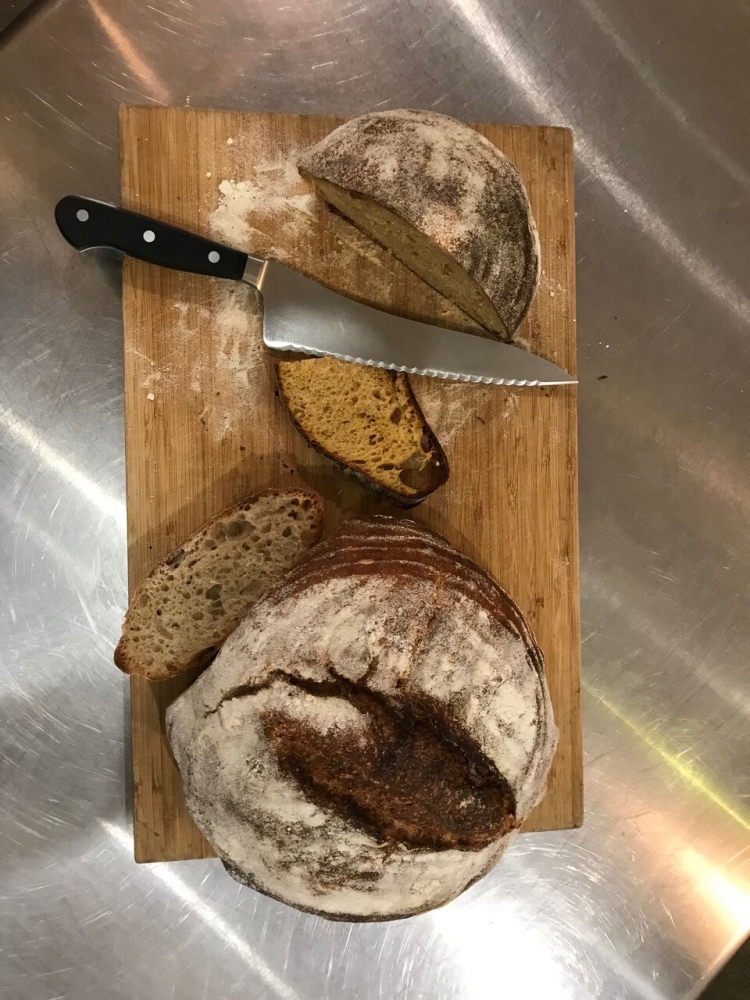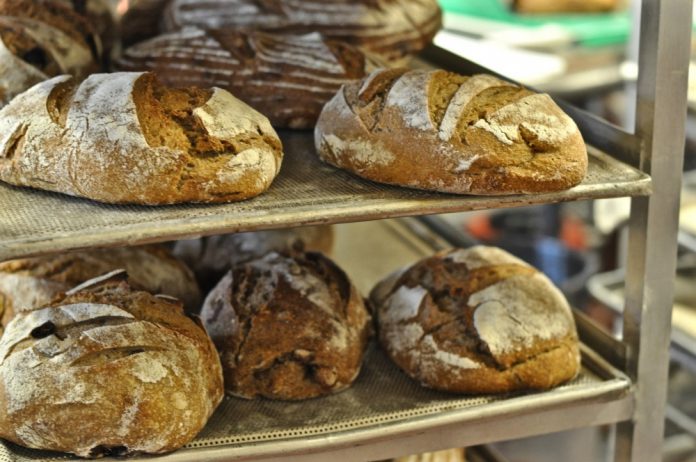Did you know that California was a leading grain producer from 1860 to the late-1800’s? By 1890 it was the top wheat producer in the nation!
California’s climate is ideal for grains (especially heirloom varieties), as they tend to have low water requirements. And grains are ideal for erosion control, suppressing weeds, building soil and spring pasture. In fact, according to Alex Weiser of Weiser Family Farms, a founding member of The Tehachapi Grain Project, “Grains help create a nutrient dense soil that make other produce such as carrots taste better!”
Until recently, there has been little talk about bringing back major grain agriculture to California. It had moved to the mid-west due to larger land areas and cost savings — ultimately replaced by higher value orchards, vineyards and row crops in the early 20th century. Today the California Grain Campaign is working toward a goal of bringing 20% of locally farmed grain to the table by 2020. This means more California-grown grains in locally baked breads, pastries and pasta.
And here’s why we should be enjoying locally grown whole grains:
- Intact whole grains offer a complete package of nutritional benefits including fiber, B-vitamins, iron, copper, zinc, magnesium and antioxidants. Unlike refined grains, which are stripped of both the outer layer (the bran) and the nutrient-dense core, (the germ), whole grains can be an extremely valuable part of your diet.
- Grains help create a nutrient rich soil beneficial for growing quality produce (i.e. carrots). It also helps improve the soil environment for tomatoes and squash varieties, according to rodalesorganiclife.
- “Wheat just tastes better when grown locally (in California),” says Weiser. With it’s mild, moderately wet winters and hot, dry summers, California is ideal for wheat production.
Go Ahead: Break some Bread — Brown rice and oats aren’t your only options for complete whole grain nutrition.
Intact whole grains provide a host of heart-healthy benefits, from digestive regularity to heart health. The fiber from the bran helps slow digestion and prevents blood sugar spikes. Fiber also helps lower cholesterol and aids in regularity. Essential minerals and phytochemicals from the intact whole grains may be cancer preventative. In fact a recent report concluded that approximately 3 servings of whole grains per day reduces the risk of colorectal cancer by 17%.
And here’s the best part – whole grain bread can have more nutrition than you think (just look for “100% whole grain” or the 100% stamp on the label). You can even buy flour contains all the components of a true whole grain (it’s got to retain the germ and bran that are often stripped in refined flours). Check out Grist & Toll in Pasadena to learn about their locally milled whole grains and flour varieties including 100% Stone Ground White Sonora Wheat, a California heirloom variety dating back to the early 1800’s. Also close by is Seed Bakery, located in Pasadena and has a booth at South Pasadena’s Farmers Market. Seed follows an old world tradition of milling, fermenting and baking bread; starting with organic grains freshly milled whole with a natural levain in the long, slow fermentation period.
Related: Crop Rotation – How to do it to keep your garden healthy and balanced.
References:
http://www.scielo.org.mx/scielo.php?script=sci_arttext&pid=S1405-22532010000200002
https://www.tehachapigrainproject.org
http://californiagrains.com/campaign/
https://www.hsph.harvard.edu/nutritionsource/whole-grains/
http://www.ruganicarrots.co.za/farm-news/taste-the-greenways-difference/
https://www.rodalesorganiclife.com/garden/crop-rotation-how-to/slide/3















.png)











